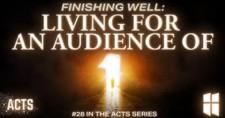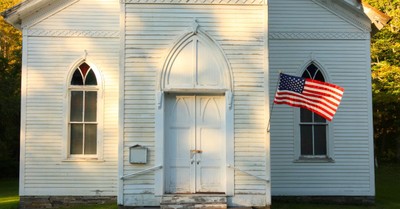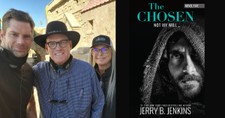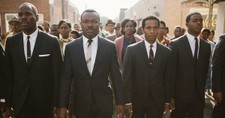
Trending Articles
Recent News
3 Reasons You Might Regret or Enjoy Taking the Kids to ‘Jurassic World: Rebirth’ 400 Inmates Surrender to Christ in Oklahoma Prison Worship Service Skillet's John Cooper Calls for Biblical Accountability in Michael Tait Case Trump to Mark Fourth of July by Honoring B-2 Pilots Behind Iran Strike New Life Church Removes Two More Pastors over Mishandling of Abuse Allegations American Pride Hits Record Low Amid Deep Political Divide Trump Announces Israeli Agreement to 60-Day Ceasefire in Gaza Max McLean Is Bringing C.S. Lewis’ ‘The Screwtape Letters’ to the Big Screen Jerry Jenkins on The Chosen Novels and the Legacy of Left Behind
Trending Articles
Recent News
3 Reasons You Might Regret or Enjoy Taking the Kids to ‘Jurassic World: Rebirth’ 400 Inmates Surrender to Christ in Oklahoma Prison Worship Service Skillet's John Cooper Calls for Biblical Accountability in Michael Tait Case Trump to Mark Fourth of July by Honoring B-2 Pilots Behind Iran Strike New Life Church Removes Two More Pastors over Mishandling of Abuse Allegations American Pride Hits Record Low Amid Deep Political Divide Trump Announces Israeli Agreement to 60-Day Ceasefire in Gaza Max McLean Is Bringing C.S. Lewis’ ‘The Screwtape Letters’ to the Big Screen
Positive Stories
Celebrity
Video
Opinion
Church
Entertainment
Sports
Movies
Politics
Israel
Christian News Headlines - Breaking and Trending Religion News
Crosswalk Headlines - Christian news brought to you by a group of Christian writers and editors who are dedicated to creating a well-rounded look at what’s happening across the globe from a Christian worldview. Our vision is to inform and inspire productive discussion about the current events and online trends that shape our lives, our churches and our world.Crosswalk Headlines includes blog posts about current events and Christian media, breaking news, feature articles, and guest commentaries, many written by respected Christian thinkers.




































































